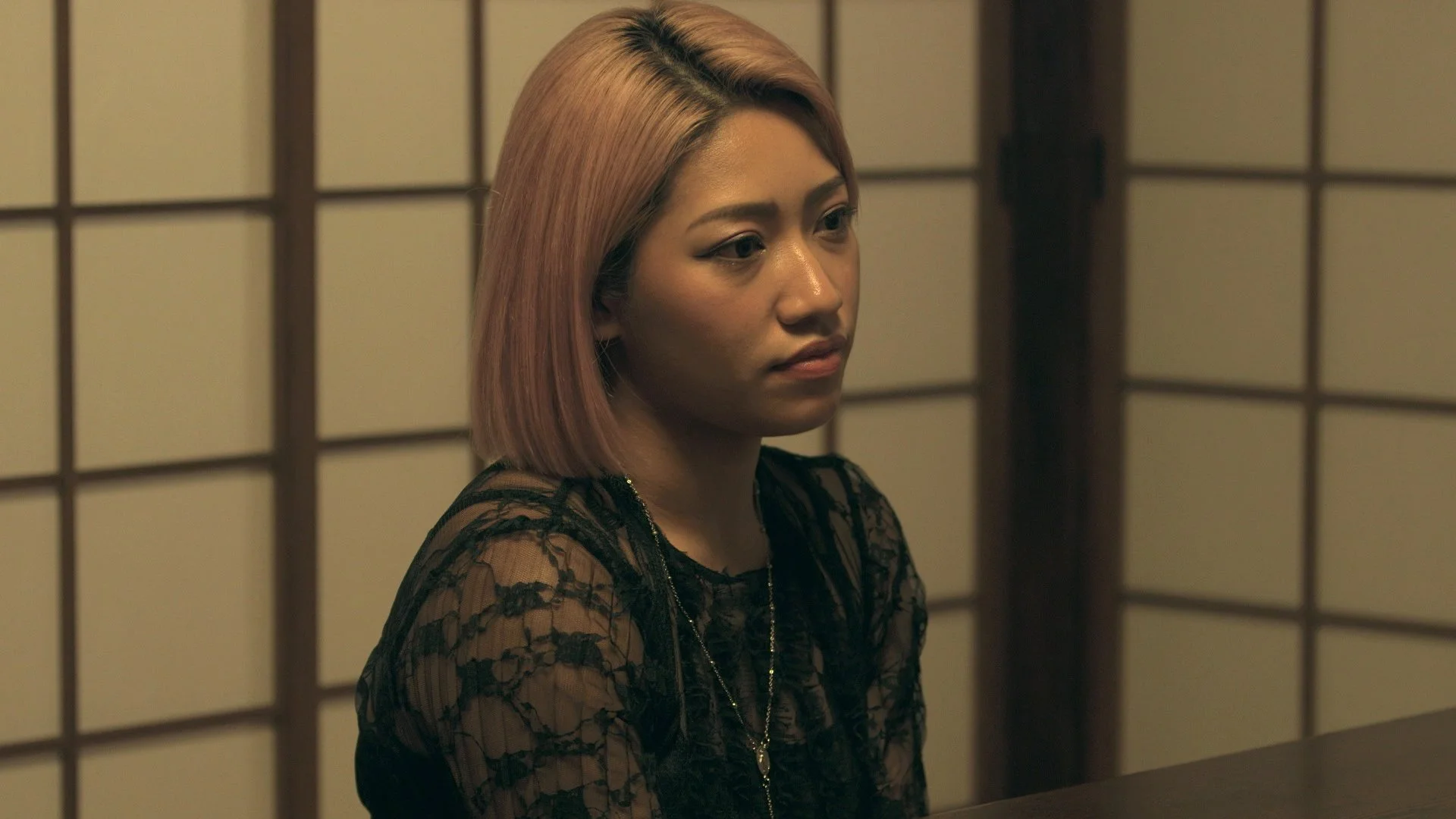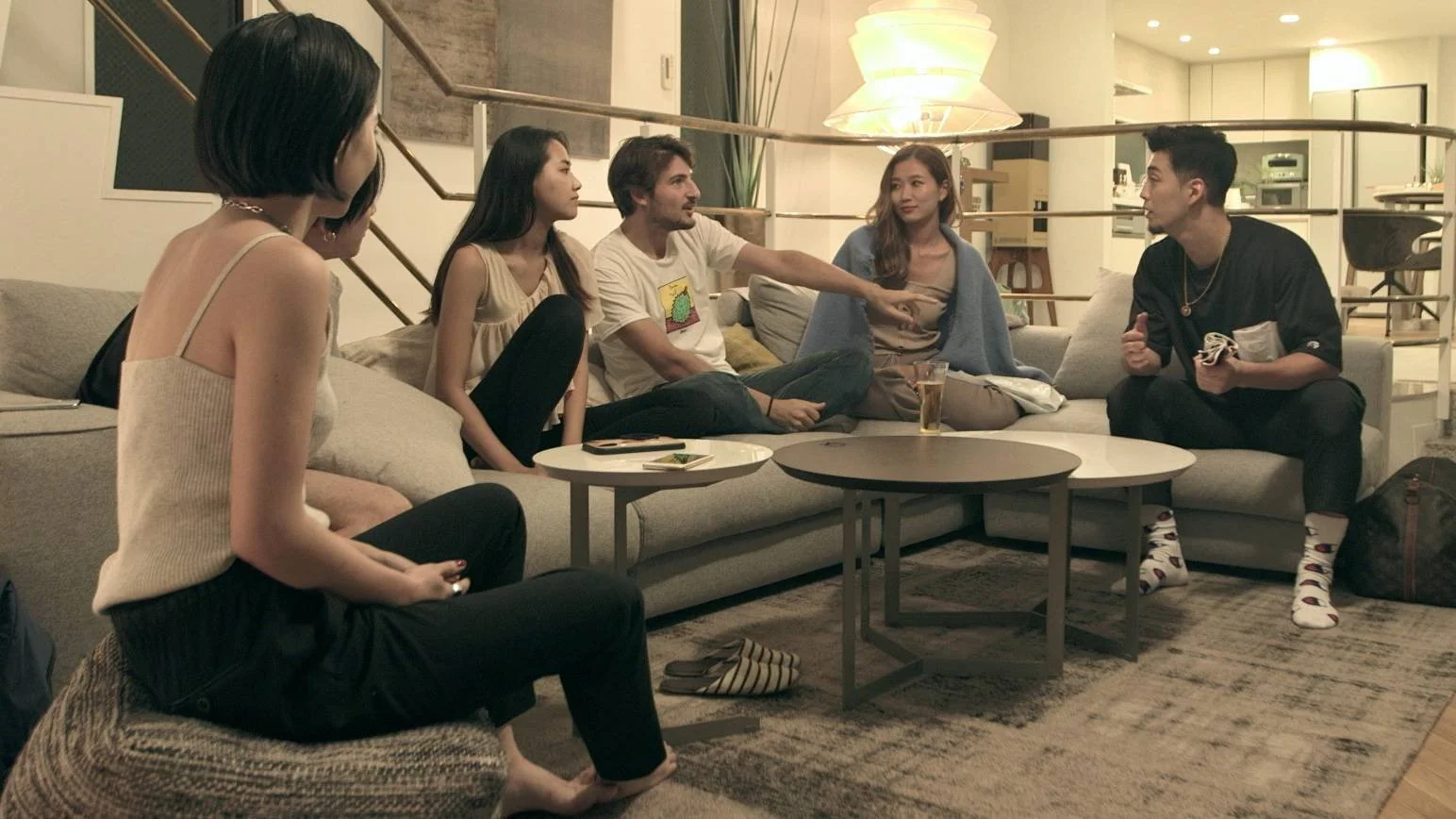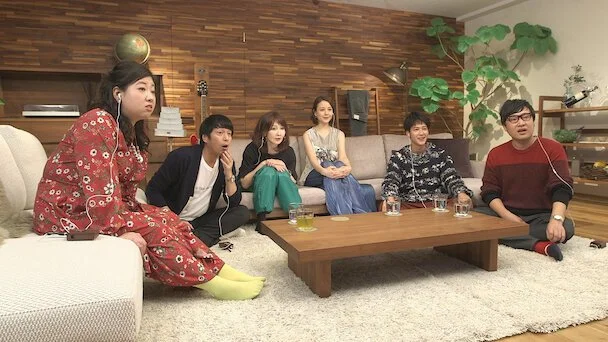terrace house: the japanese reality tv show that killed a girl
Written by Daphne Bryant
CW: Racism/Cyberbullying, Self-Harm, Suicide
All images courtesy of Terrace House/Netflix
Unlike many people, my first introduction to Japanese media and culture wasn’t anime, manga or J-pop.It was Terrace House, a reality TV show and franchise that rose to international fame after debuting globally on Netflix. The show is similar to that of dating shows you may be more familiar with, such as Love Island; it follows the lives of six strangers, three men and three women from different walks of life, who live under the same roof while getting to know and date each other.Another facet of the show are the panelists, who interrupt in between scenes to give studio commentary on the episode as viewers watch.
At the beginning of every episode the panelists also claim that Terrace House is entirely unscripted. It’s not hard to believe; interactions between the cast members themselves are very rarely sensationalized in the way interactions between American reality stars are.
There are no cocky intros or annoying sound effects. Sometimes the show literally drags on because it’ll take forever for a love story to get going, or for a friendship to falter. The storylines are normally subtle, and if anything the panelists are more extra than the actual cast members are. It’s part of what initially drew me to Terrace House; the cinematography was beautiful and cozy, the conversations were seemingly authentic, and the romance (even the more passionate ones) was always gentle. There is a lot to like about Terrace House, but there’s a lot to hate too.
Many cast members have admitted that while there really was no official script, sometimes certain housemates would receive specific instructions on how to behave for a scene. According to Fuji TV, before you can come on the show you have to agree to all instructions and decisions regarding the way scenes are shot and edited afterwards. I guess you sign up for that sort of thing when it comes to reality television, but these types of conditions become breeding grounds for emotional and physical manipulation.
The cult following the show built is also part of the problem. Not only are the panelists bullies, often making mean, flippant and harsh comments, but the fans are too. It was not unusual to publicize misdirected and blatant hatred towards cast members; of course, this sort of thing isn’t unique to Japan, but I think it’s important to mention just how impassioned Terrace House’s fanbase was.
I also think it’s important to explain that in Japan, episodes were coming out once a week, so everyone watching the show there was responding in real time. They didn’t have the luxury of streaming it and getting to see the full picture or the bigger context. They couldn’t skip ahead and see that the situation might miraculously resolve itself in the next episode. All you had was what happened that week.
When a heated episode aired in early 2020, involving an argument between cast member Hana Kimura and fellow cast member (as well as love interest) Kai Kobayashi, netizens immediately took to the forum pages and began shitting on Kimura. What was ultimately a minor dispute over a ruined wrestling costume spiraled fans into a nationwide hate train.
Post-episode Kimura faced intensified criticism, name-calling and racist abuse from social media users, but the truth is that online hate being thrown at her wasn’t a new thing. This cyberbullying had been going on for a long time, pretty much ever since she arrived at Terrace House, for everything from her wrestling profession to her Indonesian heritage. I didn’t know this until researching the case later, but I’m sure it’s true. Like I said, the fans, and the panelists, were ruthless.
I remember watching earlier episodes with Kimura once they landed on Netflix, and not once did I ever think anything bad about her. She was such a sweetheart, and she lit up every room she was in.I also always loved learning about multiethnic cast members. Every now and then Terrace House would have them. I was a really big fan of Lauren Tsai from the Aloha State season, who was half-white, half-Japanese, and despite his history with cheating, couldn’t help but adore Aio Fukuda from the Tokyo 2019-2020 season (same as Kimura’s), who was half-African, half-Japanese. I’m not sure if they faced the same kind of racist comments as Kimura did; no one I knew at the time watched Terrace House, and I was never on the forums or social media pages. That being said, knowing what I know now about the nature of the show and its’ cult, I’m sure the online experience wasn’t great for any of the cast members. Kobayashi himself was blamed for Kimura’s death, even though it was not his fault. In those early days I was genuinely rooting for the two of them, as their romance seemed so wholesome. I really had no idea what was going on behind the scenes, what either of them were going through.
Then it happened.
On May 23rd of 2020, Kimura posted images of bloodied, apparently slit wrists on Twitter, now X, and wrote that she was hurt by posts telling her to“ die” and“ disappear.” Soon after police investigators reportedly found a suicide letter at Kimura’s house, and it was announced that the reality TV star had died. She was only 22.
When it comes to Hana Kimura, I always try to approach conversations as sensitively as possible.Even re-hashing the events now makes me emotional.This was a show that meant so much to me, and the illusion shattered so quickly, all at once. Terrace House’s network, Fuji TV, deleted several tweets linked to the most recent season, including one promoting the costume incident that incited the most intense of the cyberbullying, cancelled the rest of the current season, and removed certain episodes leading up to the incident from streaming platforms. There are no plans to make a new series; Terrace House is over.
“There are no plans to make a new series; Terrace House is over.”
I was upset when it happened; I was just a kid after all, but looking back now, I know Terrace House made the right decision in halting all things surrounding the show.
What happened to Hana Kimura is beyond horrible, and a product of the toxic fan culture their network created and even encouraged. Kimura’s mother claims that cast members such as her daughter were forced to do and say things they didn’t want to do, all in the name of playing up a plot point.Was it worth it, producers? Was it worth it, so-called fans?
Cyberbullying is evil. Most of the time if you don’t have anything nice to say you probably don’t need to say it all, especially if it’s about people you only know, barely know, through a screen. Kimura’s case also teaches us something about reality television. It can be easy to forget that these are real people, not actors. They’re not characters. They are not unshakable.And while they may provide a source of entertainment, they should not be regarded as punching bags or treated as mirrors for our own insecurities. Kimura is a victim, that much is for sure.
I’m embarrassed to admit that sometimes I still go back and watch old episodes of Terrace House. Other full seasons are still up on Netflix, and there’s something comforting about them, in the sense that it transports me back to high school summers and days spent swooning over scenes with my younger sister. At the same time, my viewing experience is so incredibly tainted. I can’t watch without thinking of Hana Kimura and what this show did to her. What cyberbullying has done to so many people.
It should go without saying, but don’t believe everything you see on TV. Be kind to others. You never know what others are going through, and it is always better to extend love than spread hate.




